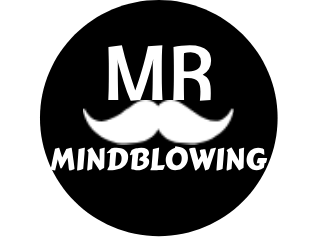I won’t gonna say that hairs are one of the most important parts of our body, but there is no doubt about how much we love our hair. It means the world to us.
When it starts to fall, we begin to use all different kinds of shampoo and stuff to just stop the hair fall.
But I am not here to discuss how much we love our hair or how important it is for us, I am here to show the reason, the poof that explains how semen and hair fall are related to each other.
Have you ever felt the effect of excessive masturbation on your hair? I know most of you did feel the effect of it, but why science denies that. Why science says there is no relation between excessive masturbation and hair fall.
There are so many unanswered questions till now.
In this article, I am gonna show you the study done by PubMed that proves the effect of excessive masturbation on the human body.
Excessive Masturbation Effects On Hair
DHT or Dihydrotestosterone is an endogenous androgen sex steroid and hormone.
Many scientific studies have shown that high levels of DHT can shrink your hair follicles as well as shorten this cycle, causing hair to grow out looking thinner and more brittle, as well as fall out faster. DHT can also make it take longer for your follicles to grow new hairs once old hairs fall out.
Source: Healthline
So now you know DHT can cause hair fall and hair thinning. A study done by researchers proves that masturbation elevates the DHT in our body, and subsequently promotes hair loss.
4 endocrinologists in 1976 itself confirmed that masturbation causes an increase in DHT levels, you can also cross-check this with any endocrinologists.
And yes, masturbating 2-3 times a week may not cause hair loss but masturbating once or more every day would significantly increase DHT and block nutrient supply to the affected follicles thereby causing hair loss.
The reason why masturbation and hair loss topic is not so popular in the scientific community is that most of the masturbation effects for long term were studied on mice, and one may notice hair loss after 6 months or 1 year of excessive masturbation, and unfortunately, no studies were done on humans for a long term regarding this.
here’s the article I’m talking about: https://www.ncbi.nlm.nih.gov/pubmed/135817
Semen Retention And Hair
There are a lot of people who claim that their hairs are growing faster and thicker than ever before.
I am also getting this benefit of semen retention, however, I am not gonna say it gonna work for everyone because it is not completely true, it highly depends on your genes and the diet that you are consuming every day.
I don’t think it’s right to support those people who masturbate daily just because they haven’t found any scientific evidence that proofs that masturbation would not cost their hair.
It is better to make them aware before it’s too late.
If you can not go one semen retention for a month, then at least try it for one week, but don’t masturbate daily, it will suck your energy and leave you numb.
Some studies also say that not masturbating can increase DHT because it will increase testosterone levels in your body.
The relationship between testosterone and hair loss is complicated.
Testosterone exists in your body in different forms. There’s “free” testosterone that isn’t bound to proteins in your body. This is the form of testosterone most available to act within the body.
Testosterone can also be bound to albumin, a protein in the blood. Most testosterone is bound to sex hormone-binding globulin (SHBG) protein and isn’t active. If you have a low level of SHBG, you may have a high level of free testosterone in your bloodstream.
Dihydrotestosterone (DHT) is made from testosterone by an enzyme. DHT is five times more potent than testosterone. DHT is primarily used by the body in the prostate, skin, and hair follicles.
It’s not the amount of testosterone or DHT that causes baldness; it’s the sensitivity of your hair follicles. That sensitivity is determined by genetics. The AR gene makes the receptor on hair follicles that interact with testosterone and DHT. If your receptors are particularly sensitive, they are more easily triggered by even small amounts of DHT, and hair loss occurs more easily as a result. Other genes may also play a part.
Age, stress, and other factors can influence whether you experience hair loss. But genes play a significant role, and men who have close male relatives with MPB have a much higher risk of developing MPB themselves.
